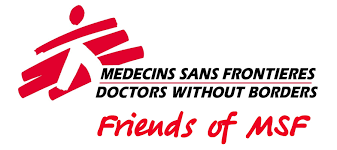Médecins Sans Frontières (MSF), also known as Doctors Without Borders, has established malnutrition treatment facilities with a combined capacity of 400 beds across Kebbi State.
The development was disclosed by Mr. Huggins Madondo, MSF Project Coordinator in Kebbi, during a media briefing on Friday in Birnin Kebbi.
According to Madondo, the facilities are strategically located across the state to respond to the growing cases of malnutrition.
He noted that MSF began its intervention in Kebbi in 2022 with a modest setup.
“At the beginning, we started with a facility of less than 20-bed capacity to tackle malnutrition. We call these facilities In-patient Therapeutic Feeding Centres (ITFC) and Ambulatory Therapeutic Feeding Centres (ATFC),” he explained.
“The ITFC is for children who require intensive care, while the ATFC serves outpatients who do not need to be admitted.”
He said the number of patients has continued to grow, prompting MSF to scale up its response. “Looking at the trend in malnutrition, we now have a 250-bed capacity facility in Maiyama Local Government Area,” Madondo said.
In line with a memorandum of understanding signed with the Kebbi State Government, MSF has also set up a 40-bed facility at Sir Yahaya Memorial Hospital in Birnin Kebbi, he added.
Madondo listed key challenges affecting MSF’s operations in the state, including late presentation of patients, security concerns, and transportation difficulties.
He commended the Kebbi State Ministry of Health for its support, noting that MSF is working closely with government officials to ensure sustainability.
“In that regard, we have an agreement with the ministry to ensure that health professionals working with MSF are recruited under our contract,” he said. “Some staff from the ministry already have experience treating malnutrition, while others are being trained by our team.”
He emphasized that MSF ensures a smooth transition when it exits any project. “We don’t leave behind white elephants or burdens,” he stated.
According to him, the Ministry of Health is actively involved in planning and decision-making, which strengthens the long-term impact of MSF’s intervention.
Madondo also noted that during the peak malnutrition season, which typically starts in June, MSF recalls its pool of professionals—including doctors and nurses—for refresher training before deployment.
Describing MSF as a “complete mobile hospital,” he said the organisation operates with experts in various fields such as water and sanitation, health information management, and logistics.
As part of its community support efforts, MSF has also drilled boreholes in several communities to provide access to clean and safe drinking water.


